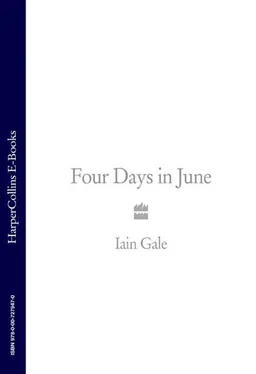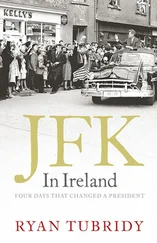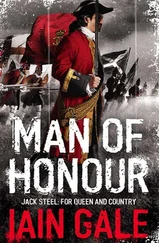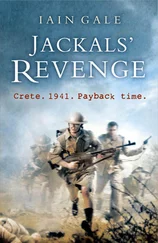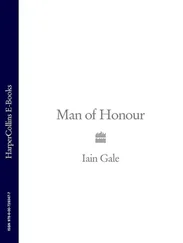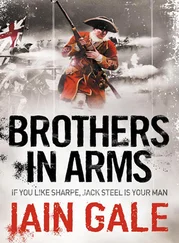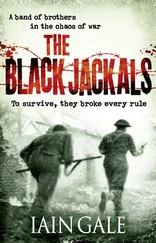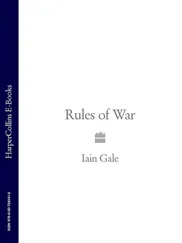It was past nine o’clock when they finished. And then, with hardly a moment’s pause, every one of the junior officers assembled at the end of the dining table, to be entrusted in turn by De Lancey with one of the duplicate orders. It was a practice which had proven its worth in Spain. How many times had a courier fallen from his horse, or been delayed by some unseen hazard? A second copy of every order was now to be delivered by ‘hand of officer’. And, like the originals, every one was to have its own receipt, from the hand of its recipient.
Check and double check. It was the only way, thought De Lancey. And he hoped to God that he had got it right. Had made no mistakes. That nothing would go wrong. For, whatever the virtue of Wellington’s strategy of caution, were anything to go awry in its execution, and if as a consequence of it the battle were to be lost, he knew that there was only one man in the entire army on whom the blame would fall.
THREE
The evening, which he had hoped might offer a little relief from the heat of a long day, was proving oppressively warm, its intense humidity hinting at the possibility of a coming storm. Michel Ney, Duc d’Elchingen, Prince of the Moskowa, tall, barrel-chested, strikingly handsome in the gold-embroidered, dark blue coat of a Marshal of France, stood alone in the garden of a shell-damaged cottage on the edge of the town of Gosselies and looked to the north. Through his field telescope he scanned the sun-dappled fields of tall rye and wheat which stretched out towards Brussels and the waiting enemy. Behind him, tethered to an apple tree, grazing placidly, stood the horse he had bought two days ago from his old friend Marshal Mortier on his sick bed in Beaumont. Mortier, the veteran of Friedland, Spain, Russia, Leipzig, struck down now, at this time of greatest need, not by an enemy musketball but by an attack of sciatica. Well, they were none of them young any more.
An officer appeared at his side. A junior aide-de-camp. Chef de Bataillon Arman Rollin. Ney spoke.
‘I see nothing, Rollin. No one. You think?’
‘I can see no movement, sir.’ Ney dropped the spyglass from his eye.
‘No. Why should there be? Of course they’re not here. They’re further north. And to the east. Oh, we’ve found them all right, Rollin. But we have not yet brought them to battle. And that is what we must do, eh?’
But how? And with what? Ney was not yet sure exactly who it was that he commanded. Had not seen many of them. On paper he had a third of the army. In the field, he stood here at the head of a corps, II Corps, General Reille’s. But as to the rest of his command – he was beginning to wonder quite where it was. He thought of historical precedent for his predicament. Scanned his mind for the many military theorists of whom he had made a study – Frederick the Great, Caesar, Gustavus Adolphus, Turenne, Alexander. Could find little to help him. Perhaps Frederick’s invasion of Bohemia – a divided army, two wings. With what result? The battle of Lobositz. But had he kept his army intact Frederick could have marched on Prague and walked straight in. An opportunity lost. Ney prayed that they had not just made the same mistake with Brussels.
The marshal had staked everything on rejoining his Emperor. In truth it had not been hard to desert the Bourbons. His wife had been treated abominably by the ladies of the new Royalist court. His return to the eagles was inevitable. But there had been moments. In particular that embarrassing reconciliation in the Tuileries, with Napoleon making Ney pay for his previous defection and all his grand utterances in favour of the new monarchy. The agony of contrition. Particularly before his fellow generals. But then – silence. The Emperor had not rewarded him for his renewed loyalty until two days ago, when a letter had arrived at his château at Coudreaux, near Châteaudun, summoning him to the army. They had met at last at Avesnes. The Emperor had embraced him, had clapped his personal aide, Colonel Heymes, on the back. They had all joked and smiled. And over a long, relaxed dinner their friendship had resumed.
They had spoken of the old days. Of Friedland, Eylau, Borodino. Not, predictably, of Spain. And then it was that he remembered just how much he loved that man. How long he had loved him. How he would have done anything for him. Still would. They were the same age and for the past twenty years their fates had been intertwined.
A sergeant-major under the last King Louis, by 1794 Ney has risen to major in the Republic, received the first of many wounds and by the age of twenty-six was colonel of his regiment – the 4th Hussars. By 1797 Ney was a general de brigade.
It was Napoleon, though, who had made him. Created him first, in 1801, Inspector-General of all France’s cavalry. In May 1804, on the day after Napoleon had been declared Emperor, he had made Ney a marshal. Four years later he was a duke. His service in Russia, commanding the heroic rearguard on a retreat that had cost the lives of half a million men, had earned him the unique title ‘Prince de la Moskowa’. And Ney knew himself to be a ‘prince among men’. Knew that his presence on a battlefield could inspire men to undreamed-of feats of bravery. That his name alone could win a battle.
It did not surprise Ney that no mention had been made that night at Avesnes, or since, of the fact that before his return to the fold Ney had sworn to Louis XVIII that he would bring Napoleon back to Paris ‘in an iron cage’. That was all in the past now. There was a war to fight. A war to win.
The following morning, with no horse of his own, Ney had followed the General Staff to Beaumont in a peasant cart. And then at Charleroi, only this afternoon, a smiling Napoleon had given him command not of a mere corps but of the entire left wing – more than a third of the army. And in addition, to his amazement, the light cavalry division of the Garde – the finest cavalry in the world. His orders were merely to ‘go and drive the enemy back along the Brussels road’. Jubilant as a child, Ney had taken Mortier’s horse and ridden fast to join Reille’s II Corps at Gosselies. And so here he was, standing with the few staff he had as yet assembled, on the rising ground above the little river Piéton, looking north.
Ney felt energized, more alive in fact than he had in years. Yet he was also more than a little alarmed. He had been given no specific insight into the Emperor’s plans and had had no time to formulate his own, to conduct any reconnaissance, even to meet his own staff. He knew most of them, of course – d’Erlon, Piré and Lefebvre-Desnouettes he had served with in Spain. But Reille was known to him only by hearsay – as the Emperor’s former aide. And within Reille’s corps was a wild card. The Emperor’s brother, Prince Jerome, the now ex-King of Westphalia, had been given a division – the largest in the army. He had a reputation for rashness, and Ney was anticipating problems.
He had left his own personal aide, his old friend and confidant Heymes, at Charleroi, to improvise the rest of the headquarters staff and follow on as he could. He knew that he must win this battle, this war. For if he lost, if the Emperor fell again, then his fate could only be a dawn appointment with a firing squad.
And things were not going according to plan. Despite the vagueness of the Emperor’s orders, one thing which had become clear to Ney from even a cursory look at the map was the strategic importance of a small crossroads astride the roads from Charleroi to Brussels and Namur to Nivelles. This junction, the village of Quatre-Bras, must, he felt, be taken by nightfall. But here at Gosselies he was still some 8 kilometres short of it, confronted by a force of uncertain number and with no way of achieving his primary objective.
Читать дальше
